Eagerly awaited here too! Looks absolutely amazing...
09.02.2026 10:30 — 👍 1 🔁 0 💬 0 📌 0Eagerly awaited here too! Looks absolutely amazing...
09.02.2026 10:30 — 👍 1 🔁 0 💬 0 📌 0Should say that after I wrote this I was told by Tymo Muus that R. cripsus was actually found as foodplant in Denmark a long time ago (70s!), but doesn't seem to have made it into the English literature at all. Every day's a school day...
08.02.2026 22:57 — 👍 2 🔁 0 💬 1 📌 0
As Rob says, coastal shingle in a couple of different areas, and also on drier parts of saltmarsh (close to sites with coastal shingle). Not sure people have looked that widely - only found by a couple of people. Paper here: www.researchgate.net/publication/...
08.02.2026 22:51 — 👍 2 🔁 0 💬 2 📌 0

New Caledonian Forests are full of hidden natural treasures! 🌿🦋
Our new ZooKeys paper (led by Antoine Guiguet) describes two spectacular new species of Caloptilia moths—C. augeas and C. ceryneia—discovered in the Parc des Grandes Fougères.
zookeys.pensoft.net/article/1738...

New research from Belgium doesn’t support the ‘lost generation’ theory for the decline of the Wall, but does show reduced survival with warming temperatures 🌍 nsojournals.onlinelibrary.wiley.com/doi/10.1002/... (📷 Mark Searle)
01.12.2025 11:27 — 👍 72 🔁 22 💬 1 📌 0
Britain has gained a new butterfly!
The long-anticipated arrival of Southern Small White (Pieris mannii) has been confirmed.
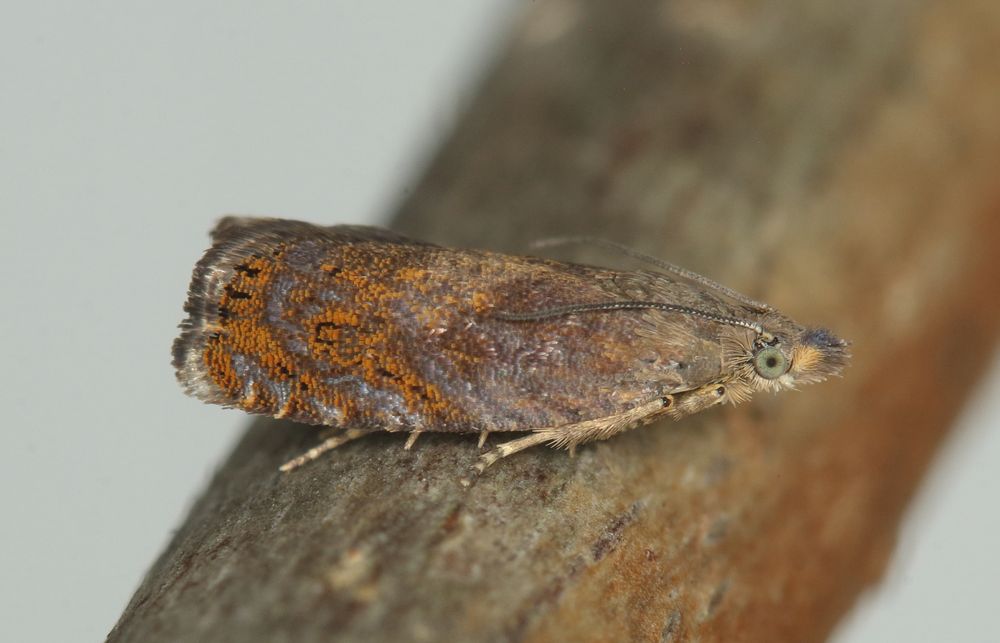
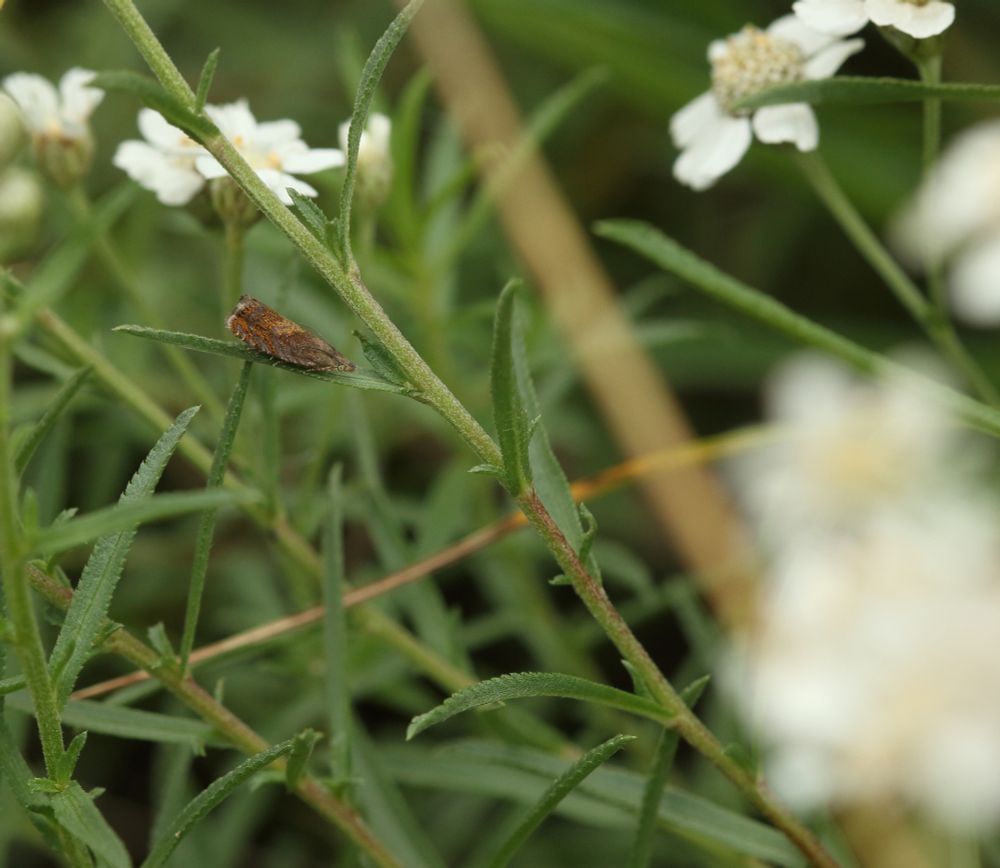
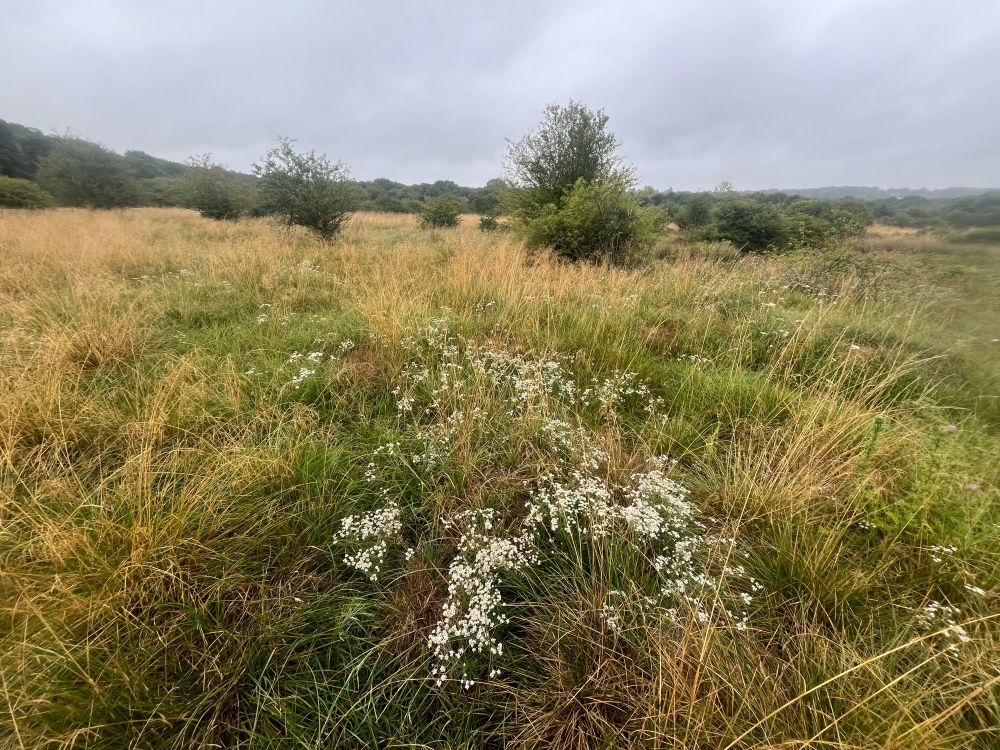
An exciting Epping Forest micro from last week - a couple of Dichrorampha sylvicolana flushed from their Sneezewort foodplant in one of our damp grasslands. Last found in the forest, Essex and (seemingly) SE England by Maitland Emmet in the 70s, it's great to know it's still here.
02.08.2025 09:04 — 👍 24 🔁 1 💬 0 📌 0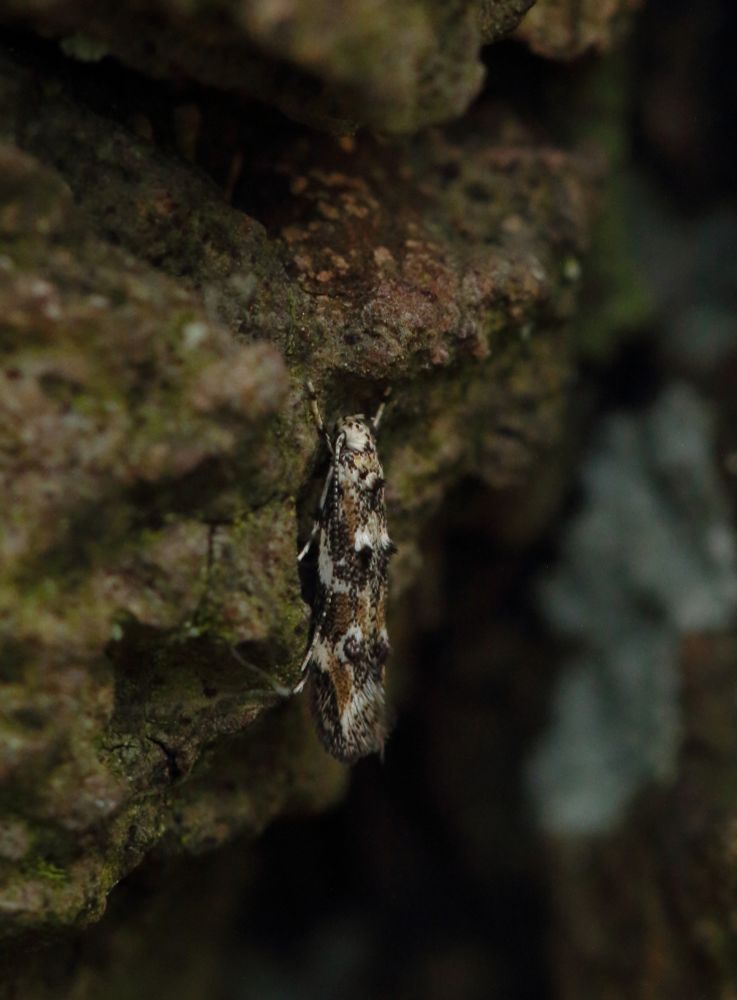
The micro moth Dystebenna stephensi on an oak trunk
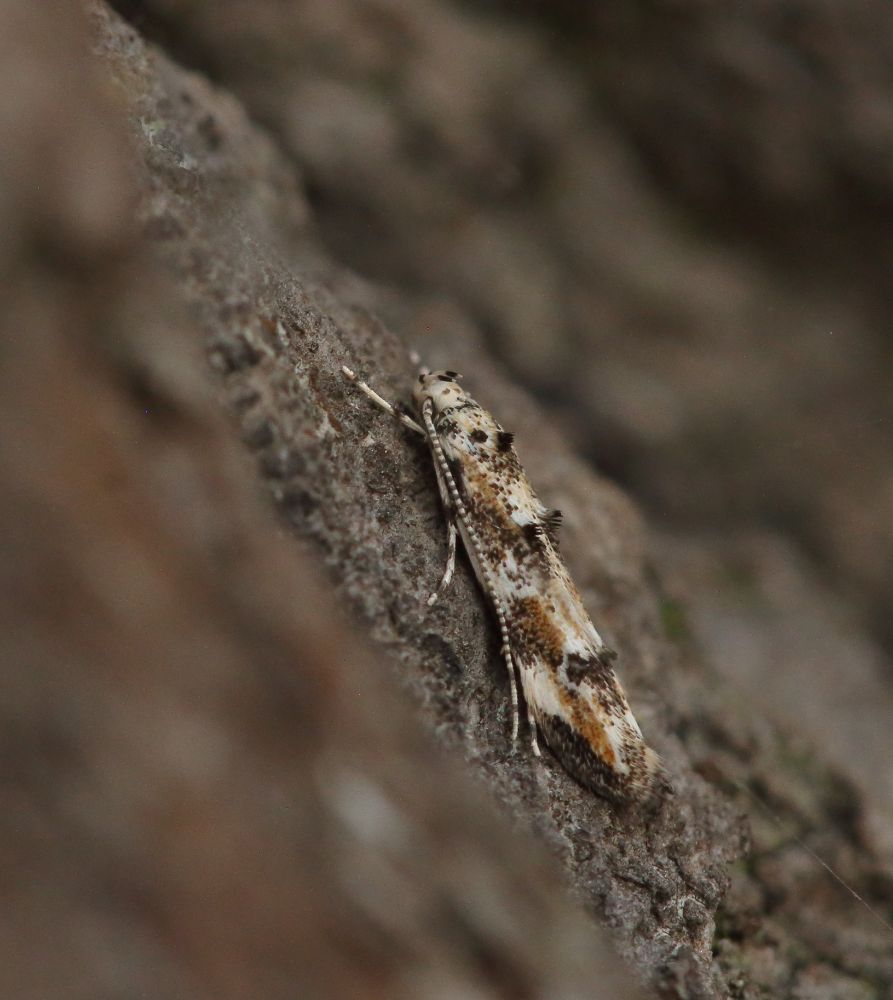
The micro moth Dystebenna stephensi on an oak trunk
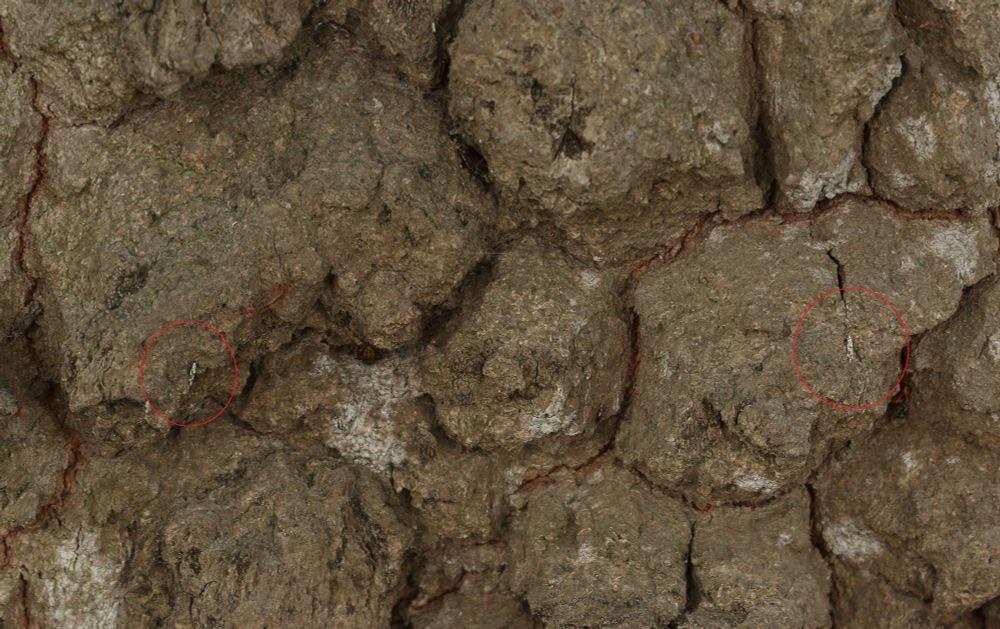
Two adults of Dystebenna stephensi on an oak trunk, circled in red.
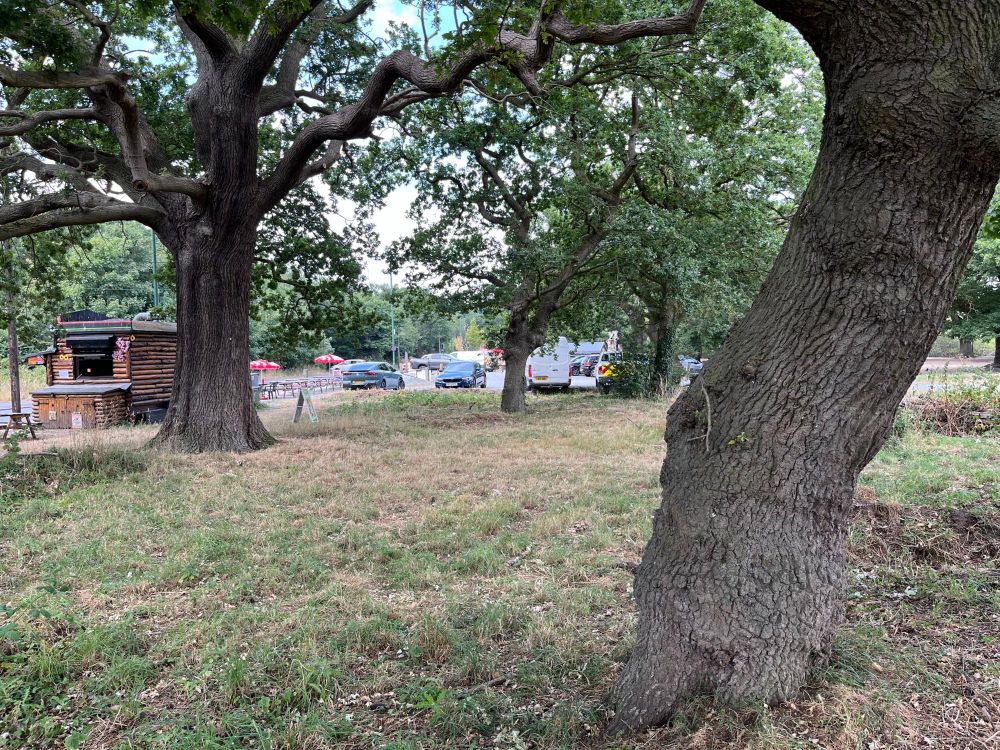
Habitat of Dystebenna stephensi with old oaks, 10 individuals were found on the trunks of the two nearest oaks.
Dystebenna stephensi was right at the top of my Epping Forest moth bucket list when I started working here, and so very pleased to have found lots of them on oak trunks in the last couple of weeks - rare, beautiful, and associated with fabulous old oaks. What's not to like! #TeamMoth
05.07.2025 14:04 — 👍 15 🔁 0 💬 0 📌 0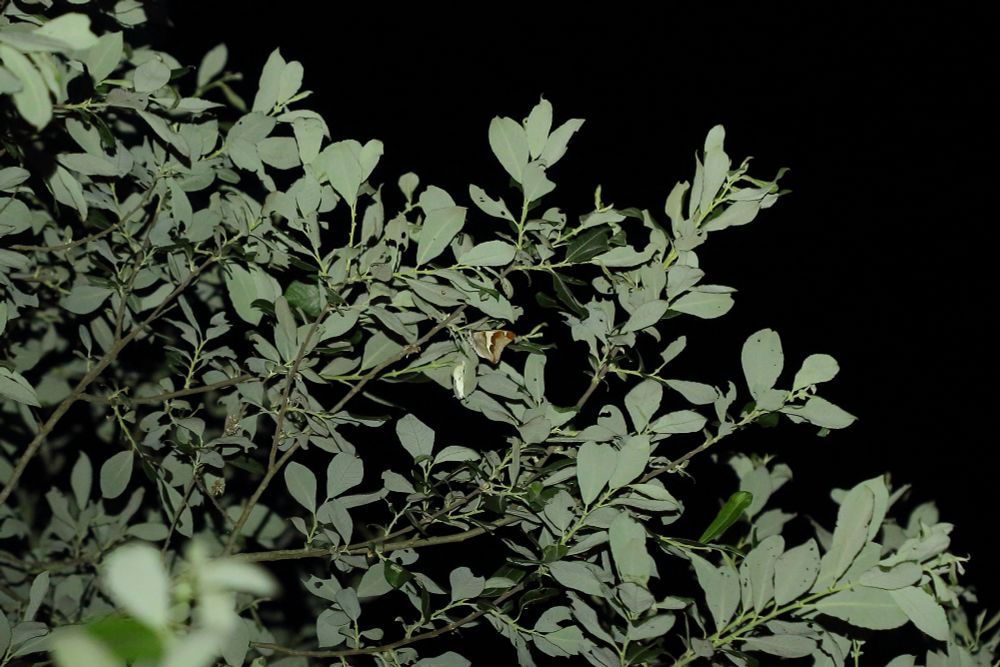
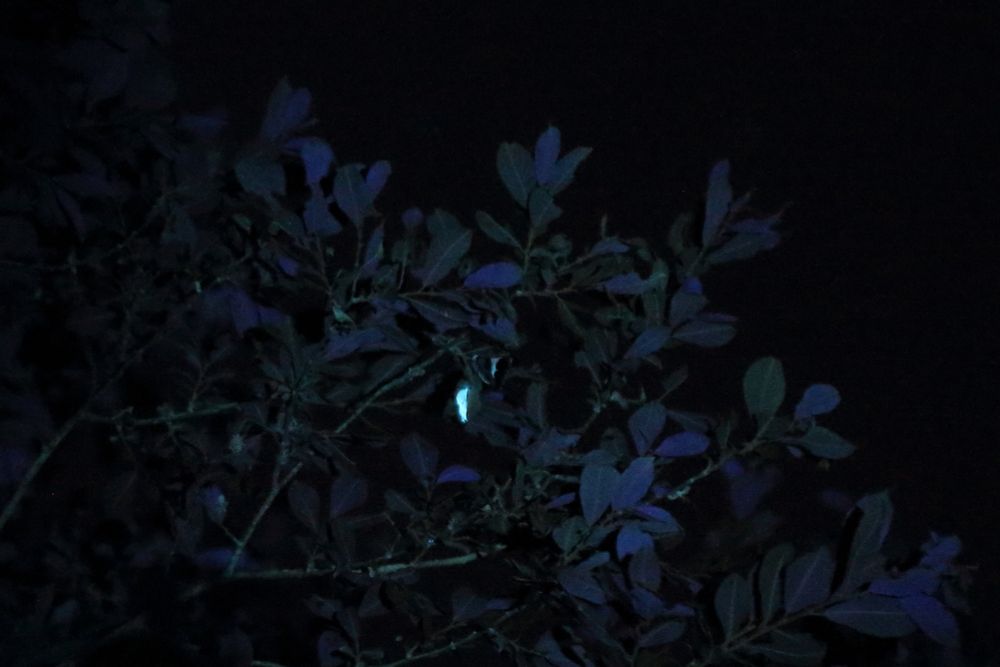
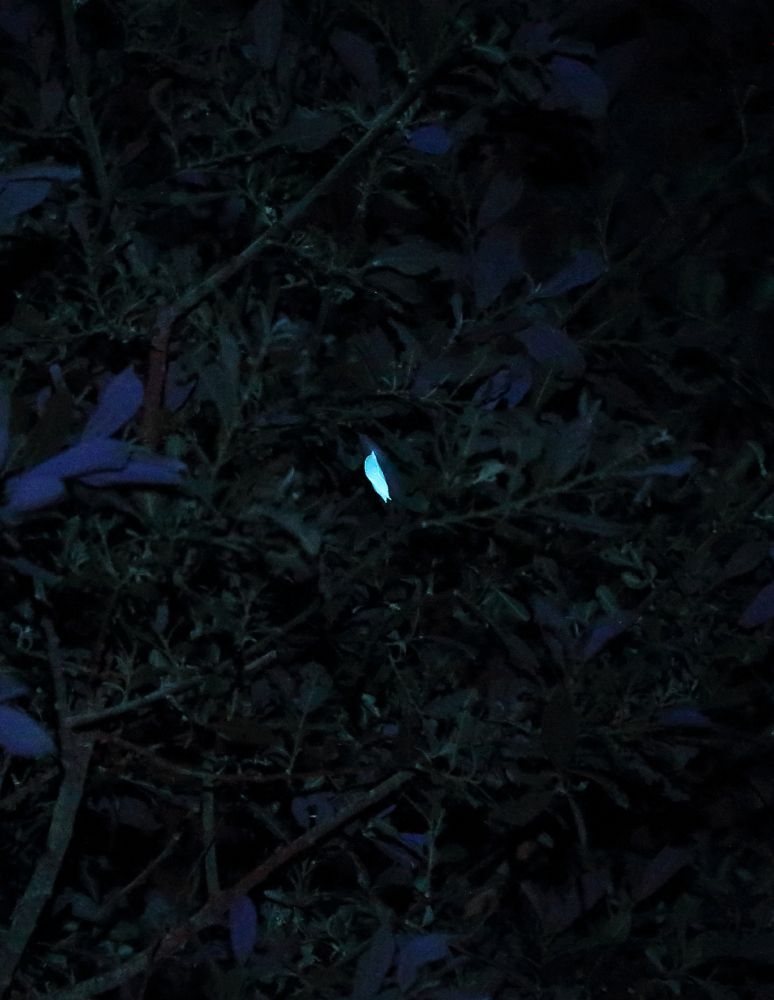
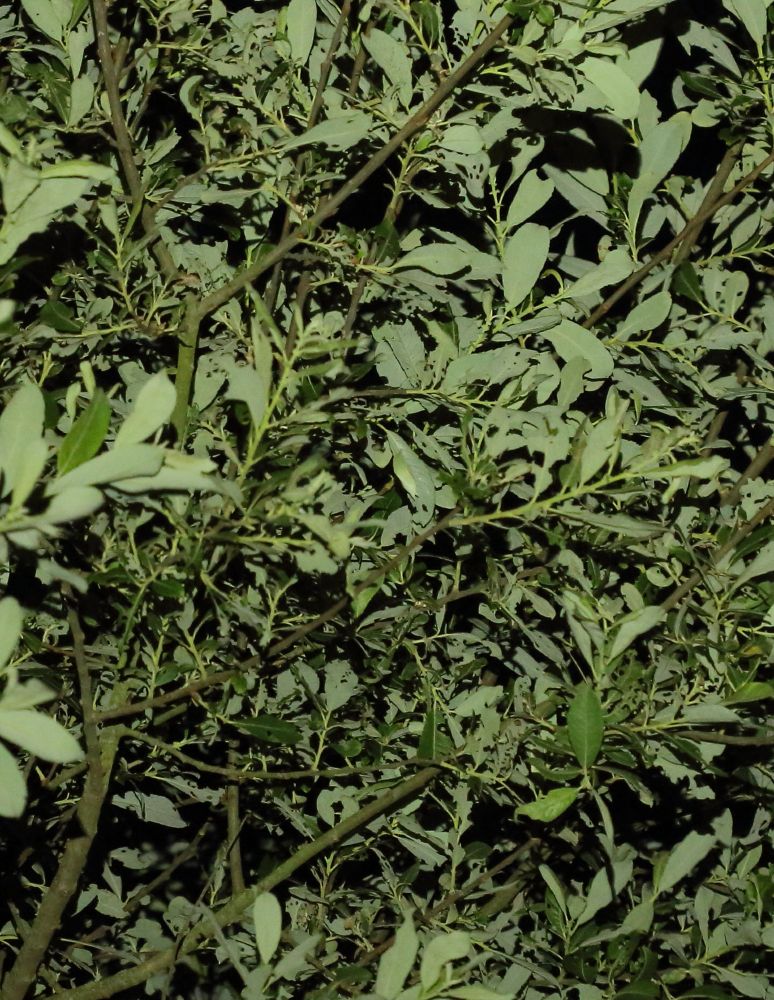
Thrilled to get acquainted with my first Epping Forest Purple Emperor the other week, found next to its empty pupal case in a UV-torch powered search after dark, which revealed three other (unhatched) pupae high in the Sallows, magical! #Butterflies @ukbutterflies.bsky.social
02.07.2025 22:28 — 👍 32 🔁 1 💬 0 📌 0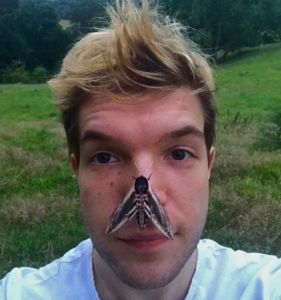
Do you know a young person with an interest in insects? 🦋
The Douglas Boyes Fund aims to provide people aged 14-18 with access to entomology equipment, fostering their passion for insects and inspiring them to engage and share their interest with other young individuals 🔽
Great stuff Chris, how are they doing this year?
13.06.2025 15:59 — 👍 0 🔁 0 💬 1 📌 0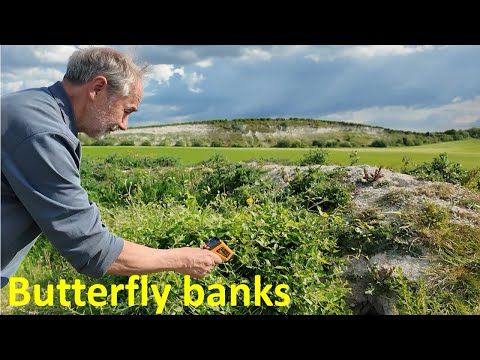
Arable land has been flattened by history of ploughing. In restoring such sites it is important to introduce variation. Here I look at butterfly banks and enthuse over the experimental testing. youtu.be/5kgAXVFo610?...
09.06.2025 06:07 — 👍 73 🔁 29 💬 6 📌 3Thanks Martin - loving it here! I'm sure I'm overlooking lots of nice Saproxylic Diptera that you'd be much better at ID-ing, trying to learn... let me know if you are passing :)
07.06.2025 19:02 — 👍 1 🔁 0 💬 0 📌 0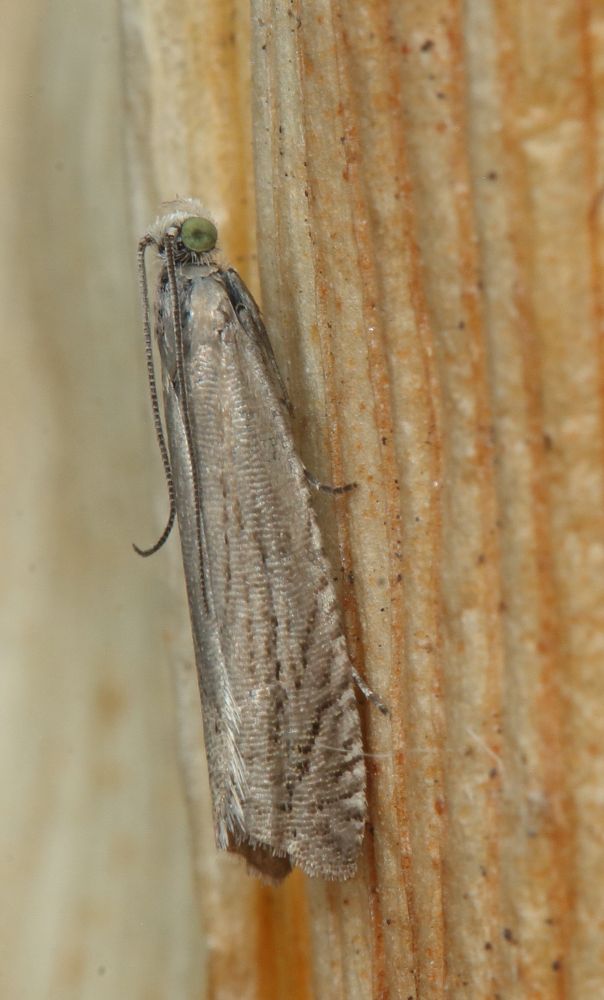
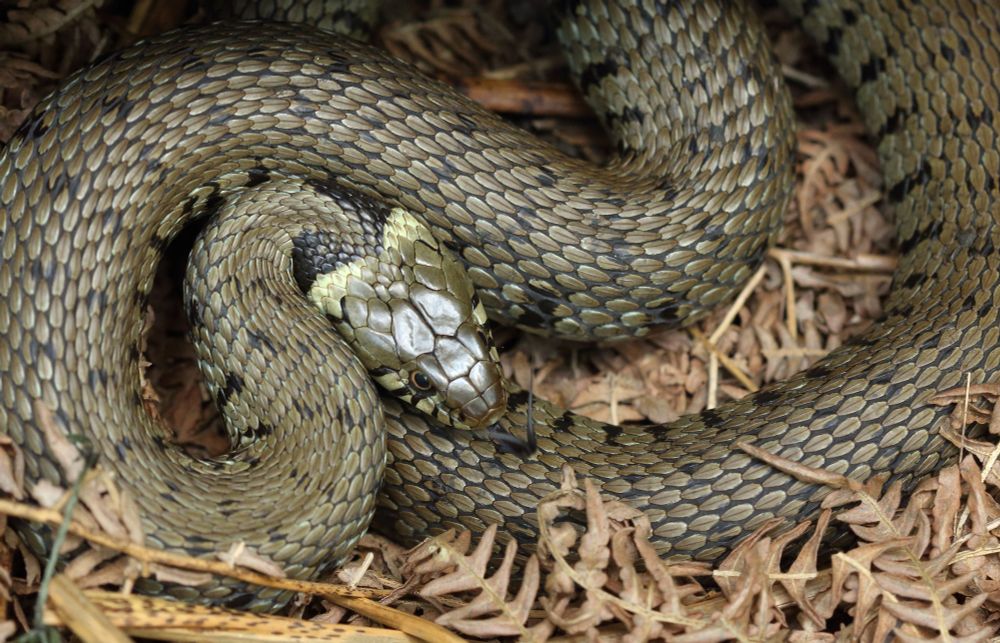
A couple of random wildlife highlights so far: Grapholita caecana - a surprise capture on an acid grassland, seems to be new to Essex, and a lovely Grass Snake on one of my reptile surveys.
07.06.2025 18:58 — 👍 4 🔁 0 💬 0 📌 0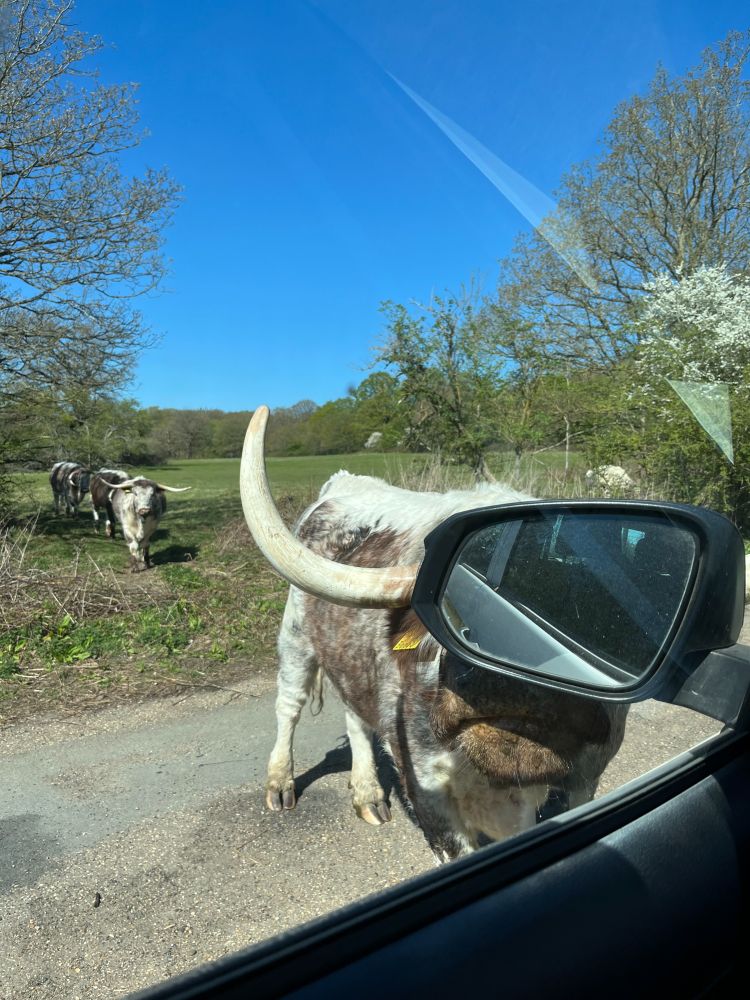
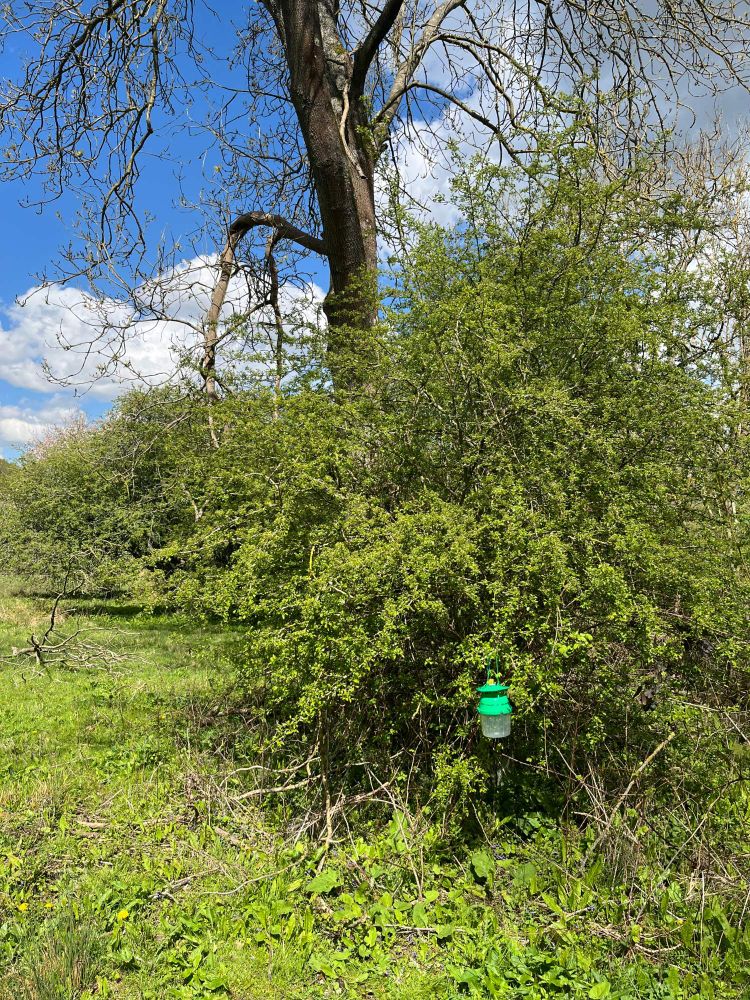
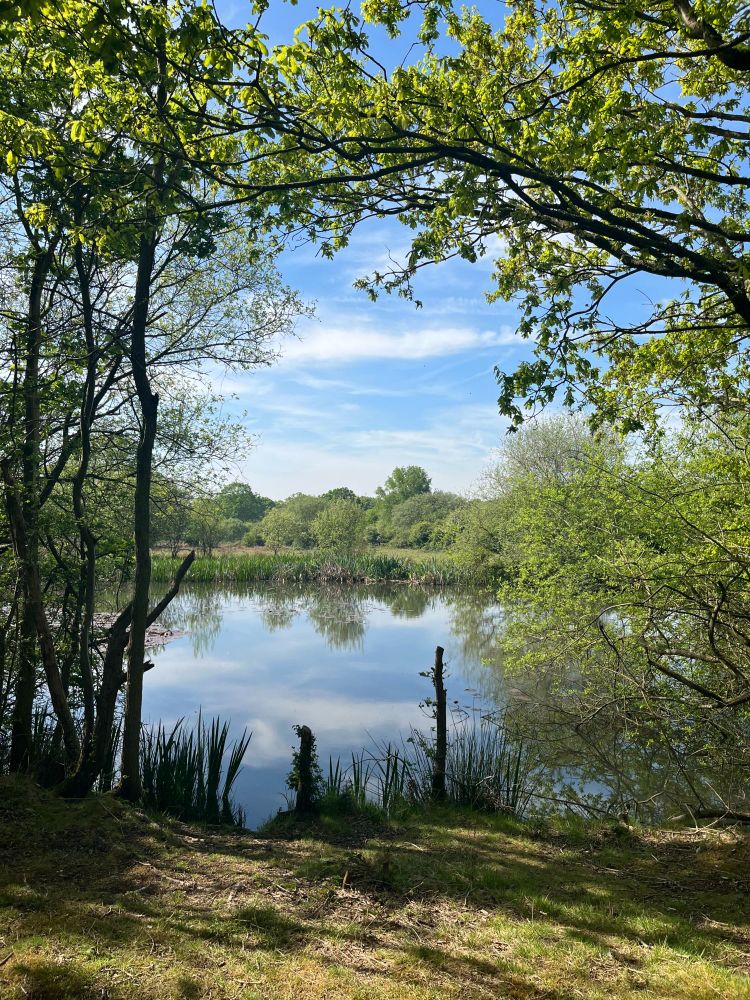
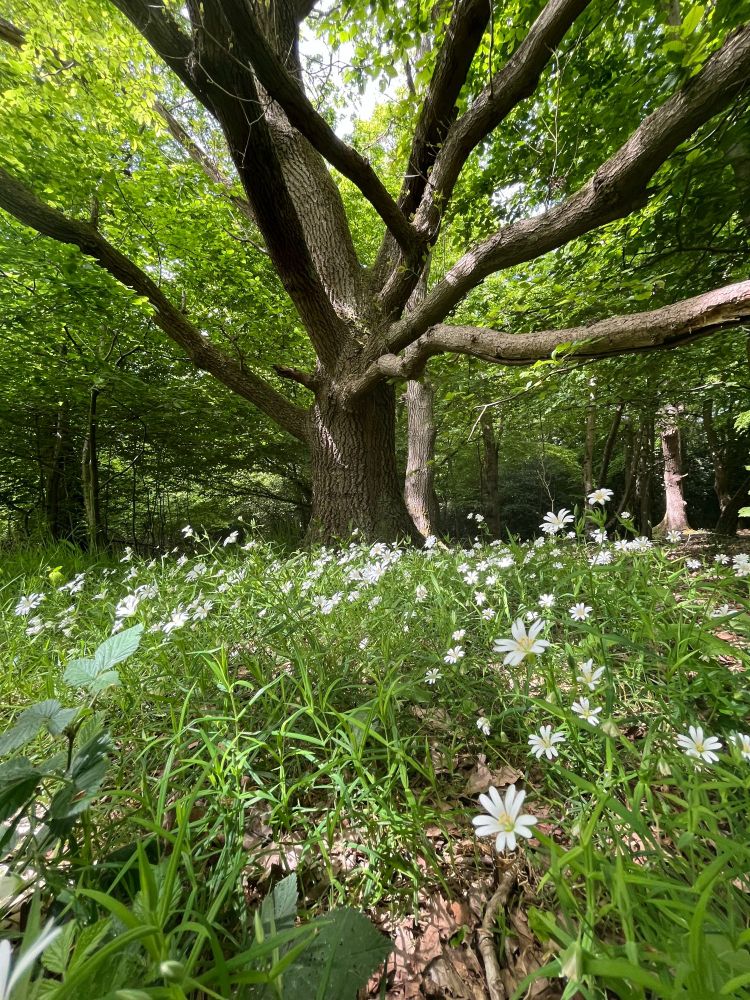
Some work news - into my third month as the new(ish!) Assistant Conservation Officer in Epping Forest. Really excited to be working in such a fantastic, ancient mosaic of habitats, and enjoyed the first couple of months - mostly out in the field in beautiful spring weather, what's not to like...
07.06.2025 18:49 — 👍 28 🔁 1 💬 2 📌 0So great to see Nick Bowles from Upper Thames BC recognised here - such a passionate, modest and determined guy who has done so much for butterflies and moths in the Upper Thames.
05.06.2025 19:16 — 👍 0 🔁 0 💬 0 📌 0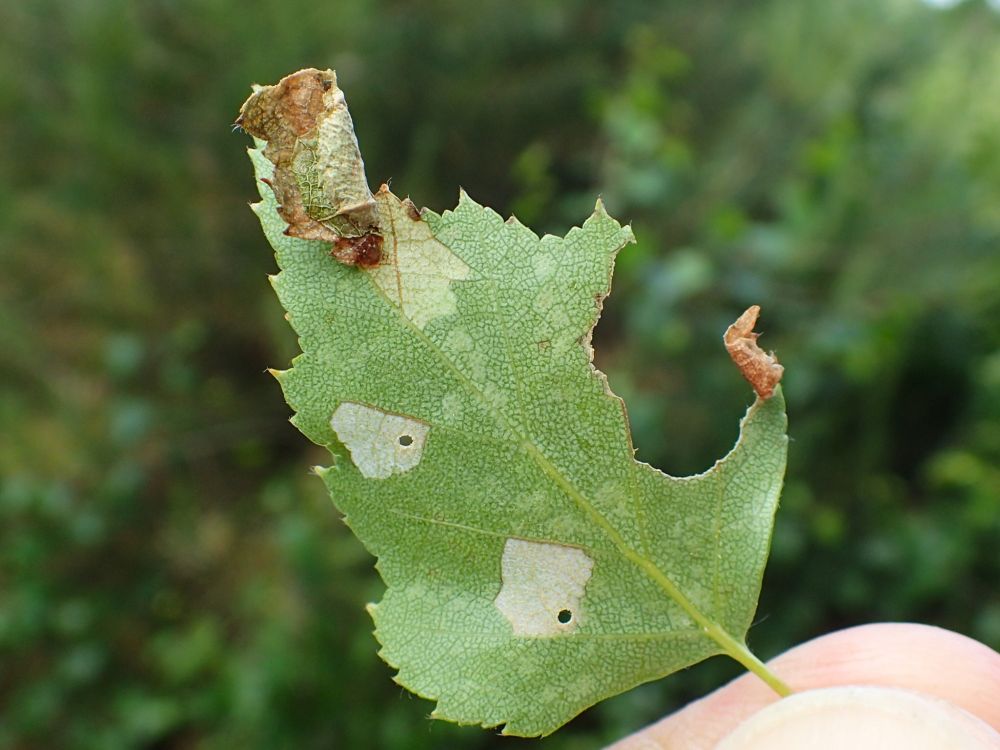
Coleophora siccifolia larva on birch. First (abandoned) case and cut-out for second case on the right and second case at the top.
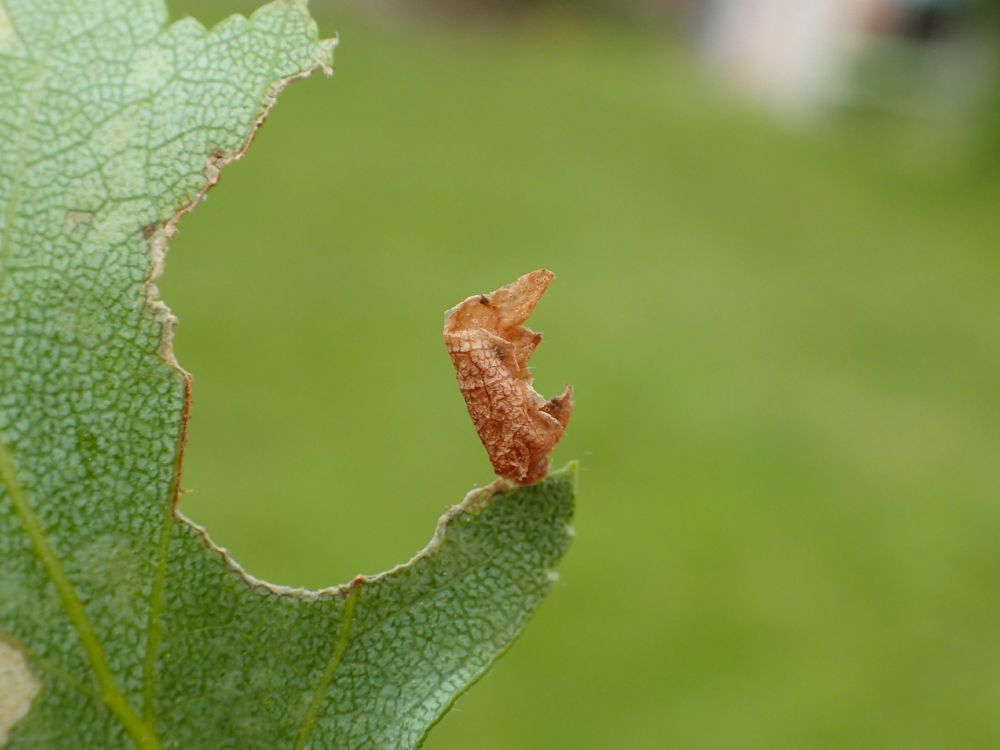
Coleophora siccifolia larva on birch (abandoned first case and cut-out for second case)
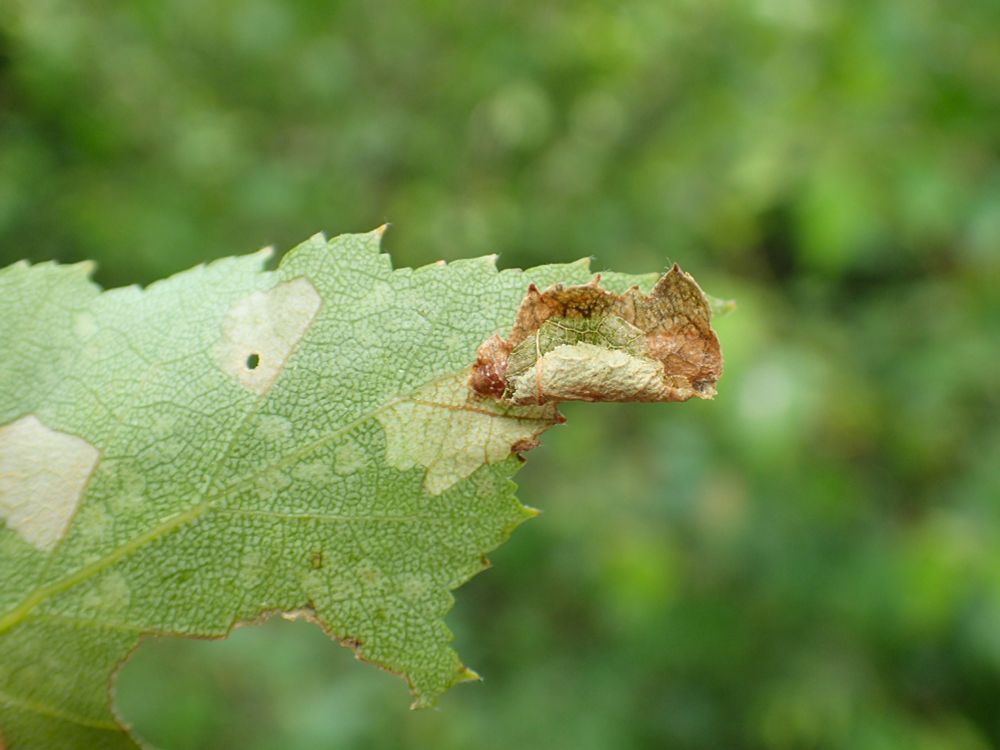
Coleophora siccifolia larva on birch (second case).
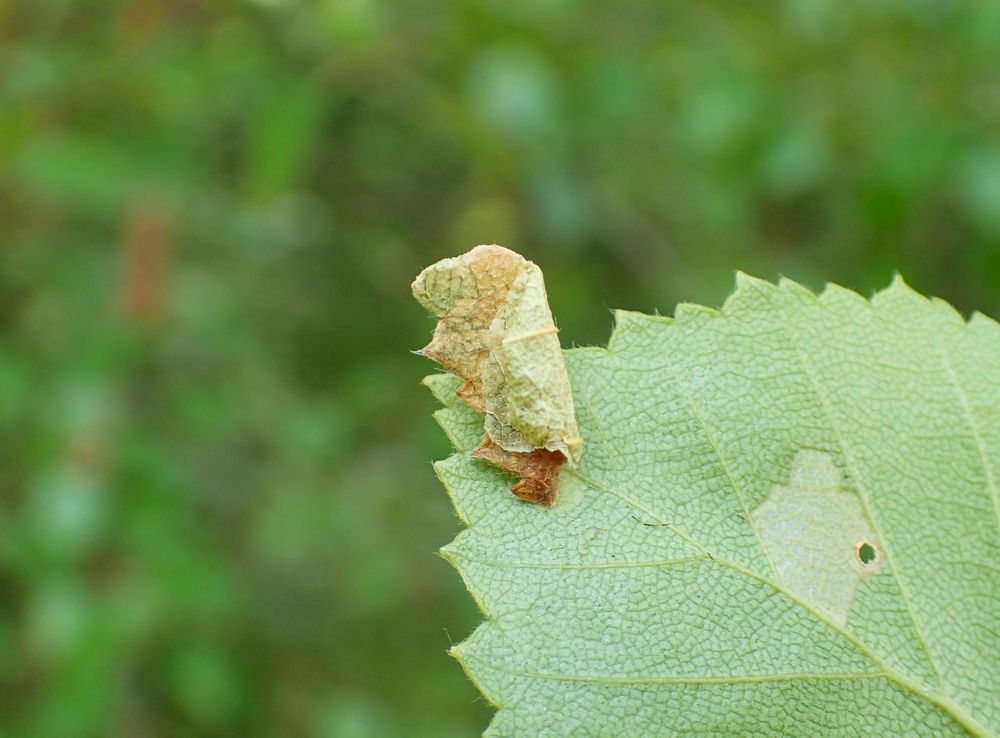
Coleophora siccifolia larva on birch (second case; different individual).
Really pleased with this one as I've been keeping an eye out for it for years: Coleophora siccifolia larval cases on birch. First case, cut-out for second case and two second cases (see ALT text for details). #TeamMoth #MothsMatter @doublekidney.bsky.social @bcyorkshire.bsky.social
04.06.2025 15:14 — 👍 29 🔁 3 💬 1 📌 0Usually we see Tau emperors (Aglia tau, tau-vlinder), a large day-active moth, racing by, the males always seem in a hurry to find females. But this time we found a male sitting. What a spectacular moth!
20.04.2025 14:15 — 👍 42 🔁 3 💬 1 📌 1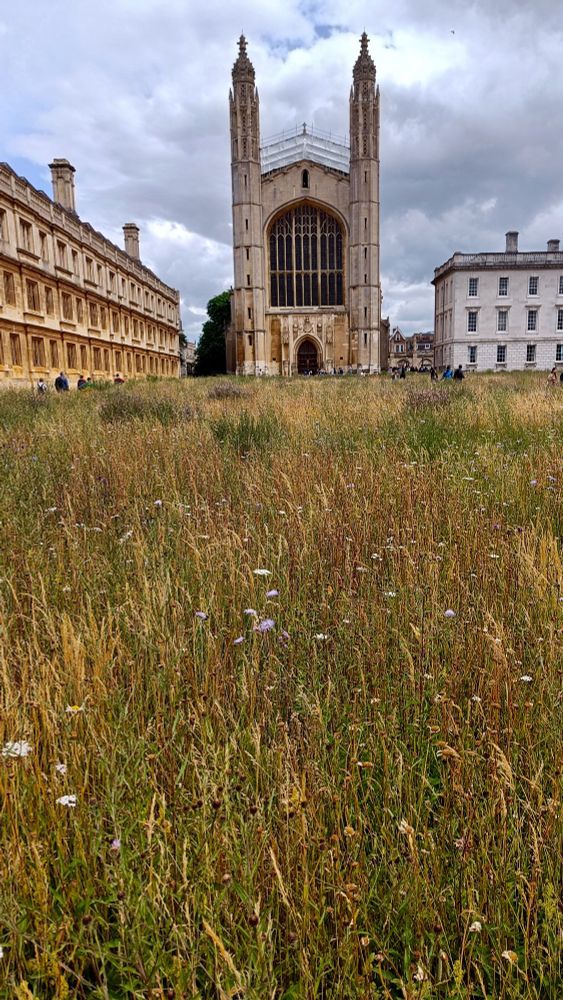
'meadow' King's College, Cambridge
One of the lesser appreciated things about Cambridge (UK) is what a green and generally nature friendly city it is.
I don't mean the largely biodiversity poor manicured green of the university Colleges (though some like King's are making some effort). I mean the network of Commons and LNRs 🧵
Yes often the case I think! I think also the berries do take two years to ripen, so you naturally get a mixture of ages on the same bush as well.
18.04.2025 10:43 — 👍 2 🔁 0 💬 1 📌 0No worries Dave, good luck! I think every chance it could be lurking on Juniper in Surrey/Hants and just needs a good search. I'd been recording around the Junipers for several years at Aston Rowant before I found it with @jamesehammond.bsky.social's prompt and had probably just overlooked it.
18.04.2025 10:42 — 👍 3 🔁 0 💬 1 📌 0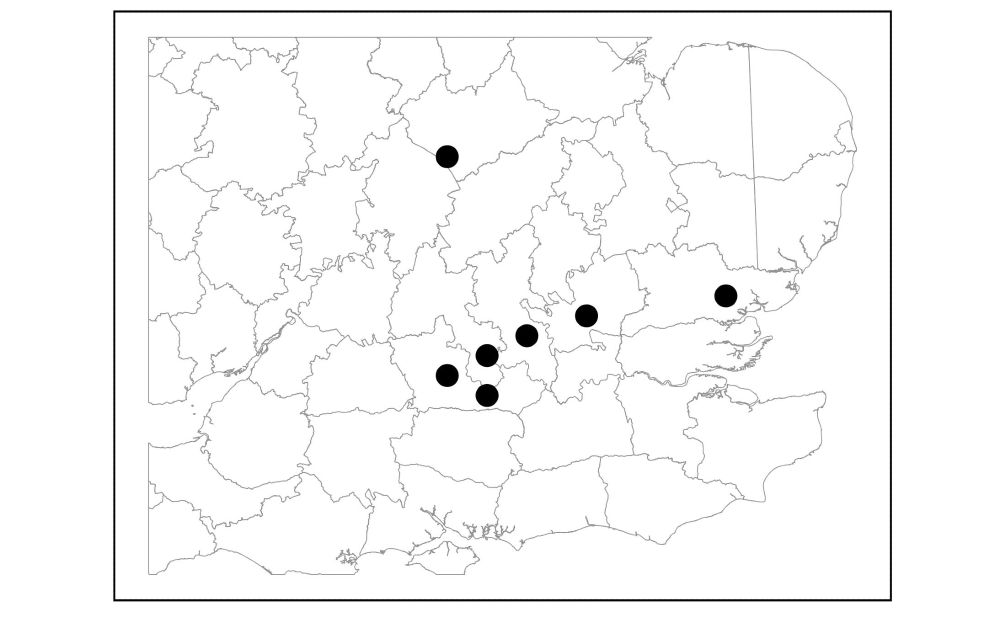
The distribution of the micro moth Pammene juniperana in the UK up to the end of 2023.
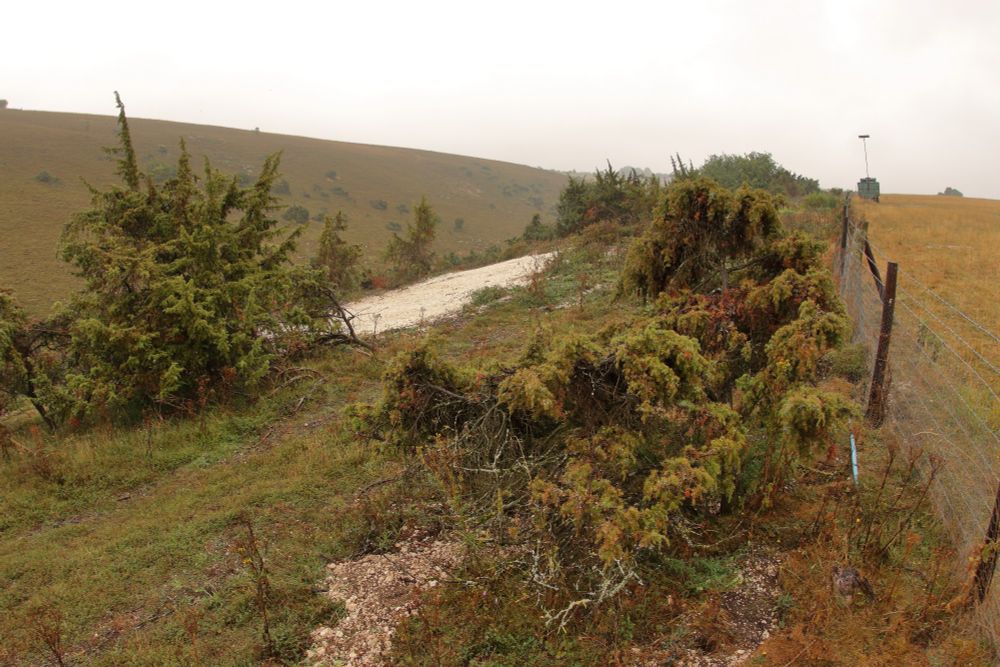
Habitat of the micro moth Pammene juniperana with wild Juniper growing on chalk downland.
It has been found over quite a large area of southern England, mostly to a range of pheromone lures in urban gardens, but also on wild Junipers on the Chilterns and Berks downs, where we found it. It is tiny and easy to overlook, so keep an eye out!
18.04.2025 09:00 — 👍 8 🔁 0 💬 1 📌 0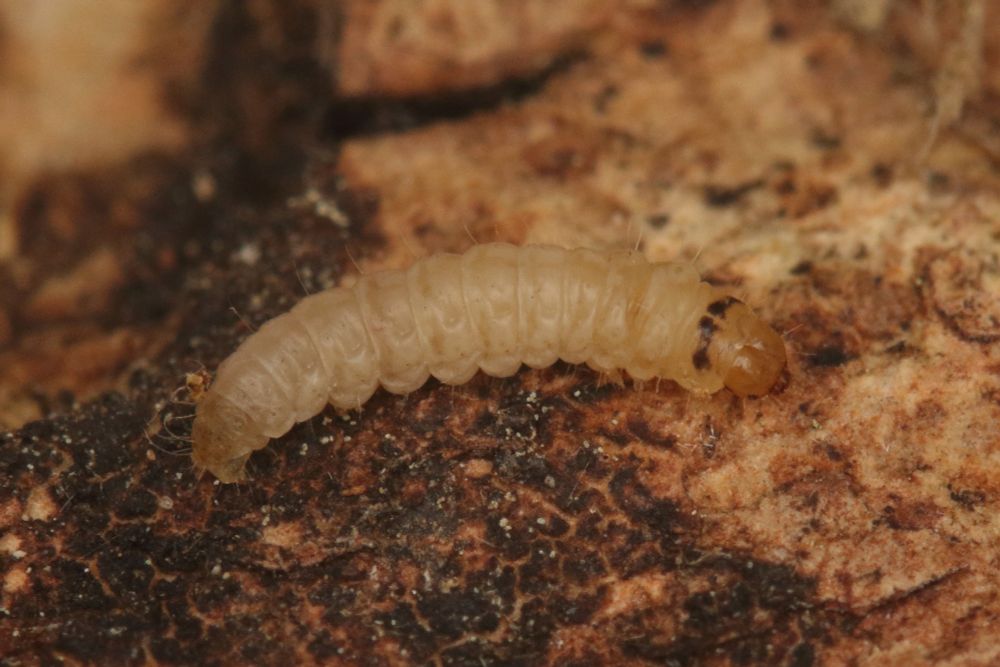
A fully grown larva of the micro moth Pammene juniperana.
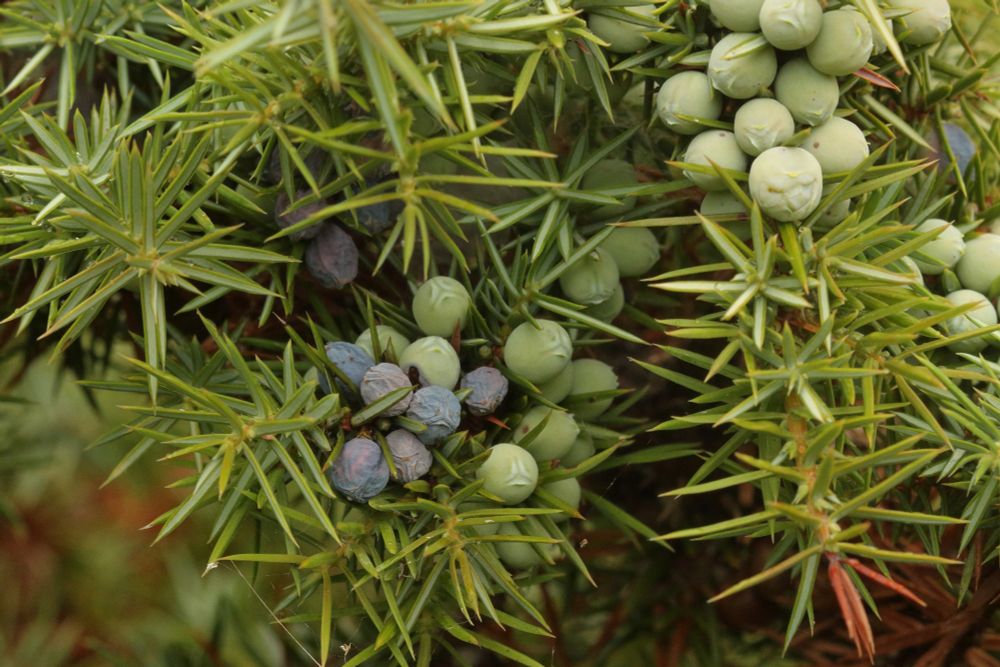
Larval feeding signs of the micro moth Pammene juniperana, with Juniper berries discoloured pale blue.
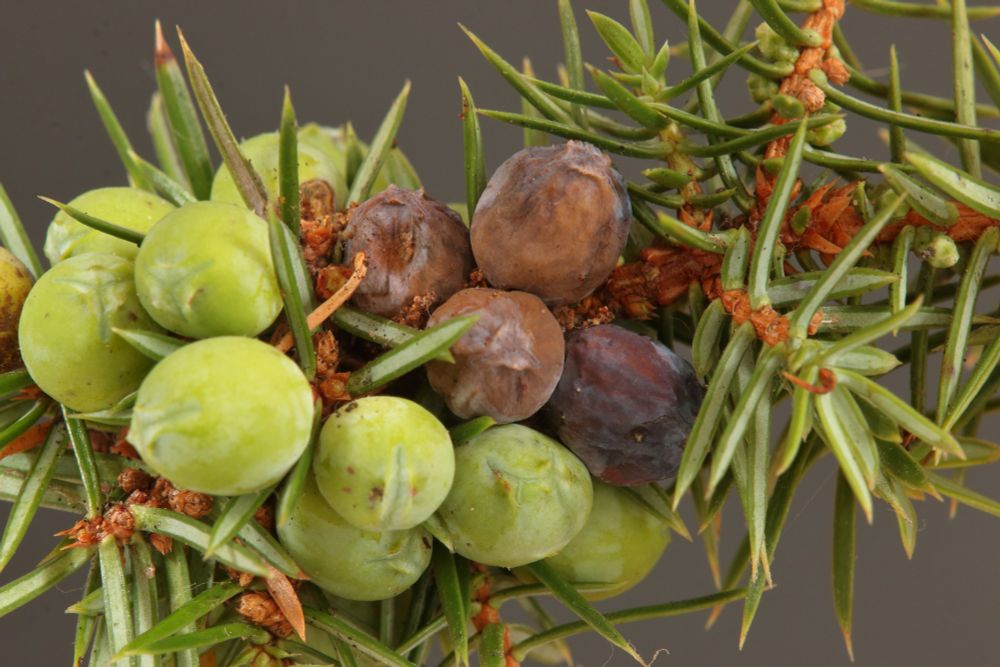
Larval feeding signs of the micro moth Pammene juniperana with Juniper berries discoloured pale blue and orange frass exuded from their base.
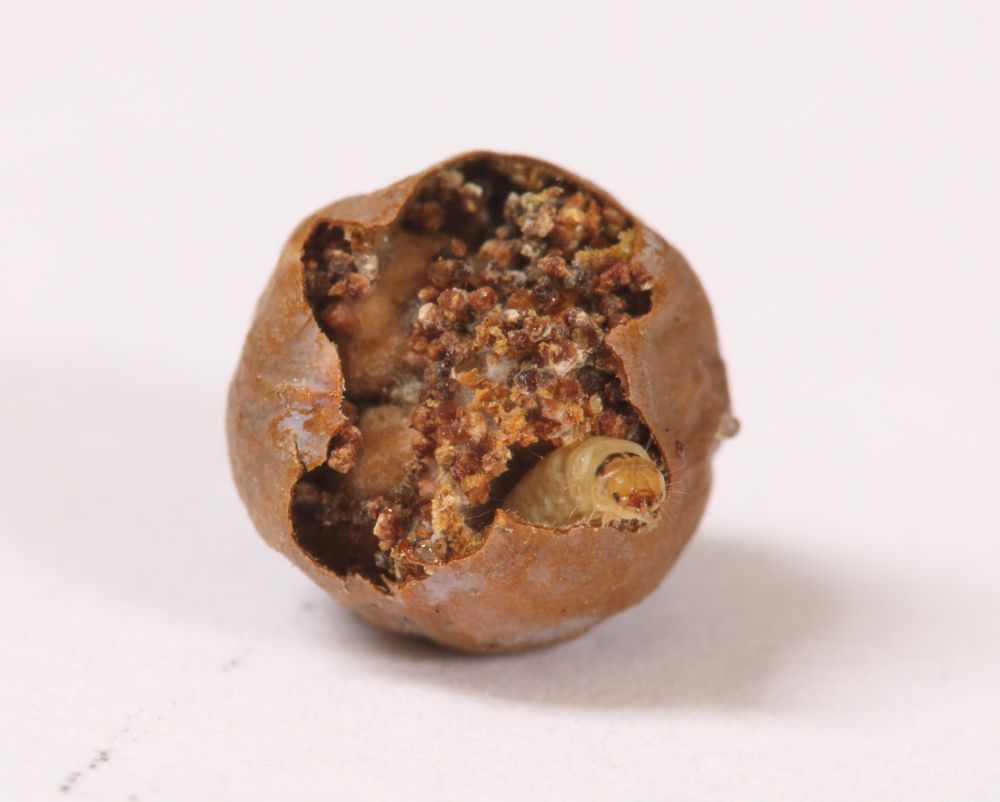
A larva of the micro moth Pammene juniperana exposed inside a Juniper berry.
And then later in the summer, the distinctive discolouration of Juniper berries, which become papery and pale blue (with orange frass exuded from the base) when a larva is within. Check the larva though - other stuff feeds in Juniper berries (Blastobasis, Argyresthia)!
18.04.2025 09:00 — 👍 7 🔁 0 💬 2 📌 0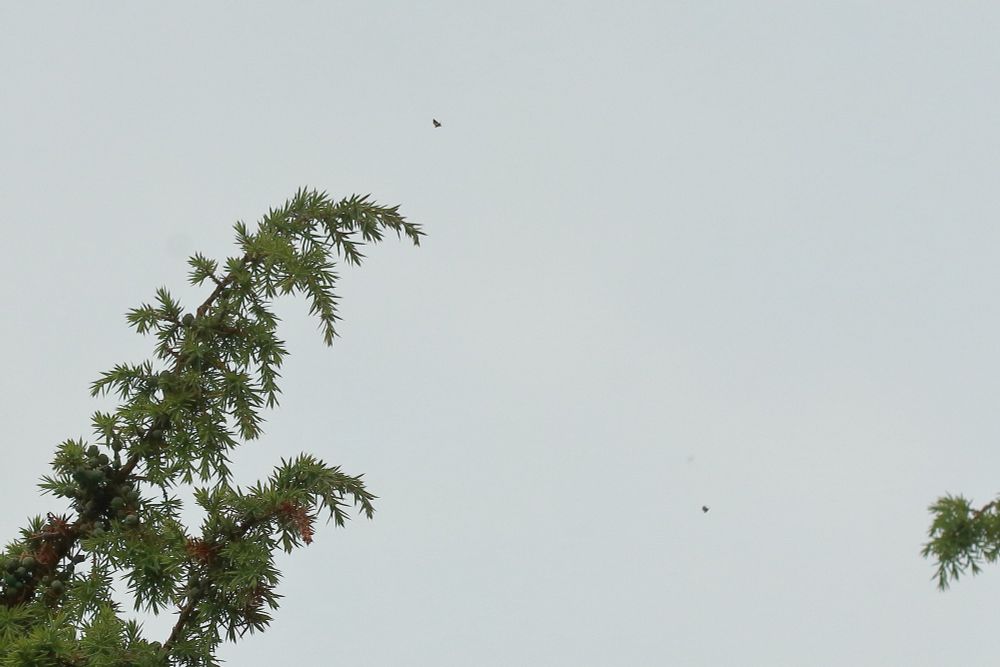
Two adults of Pammene juniperana flying around the top of a Juniper bush in late June.
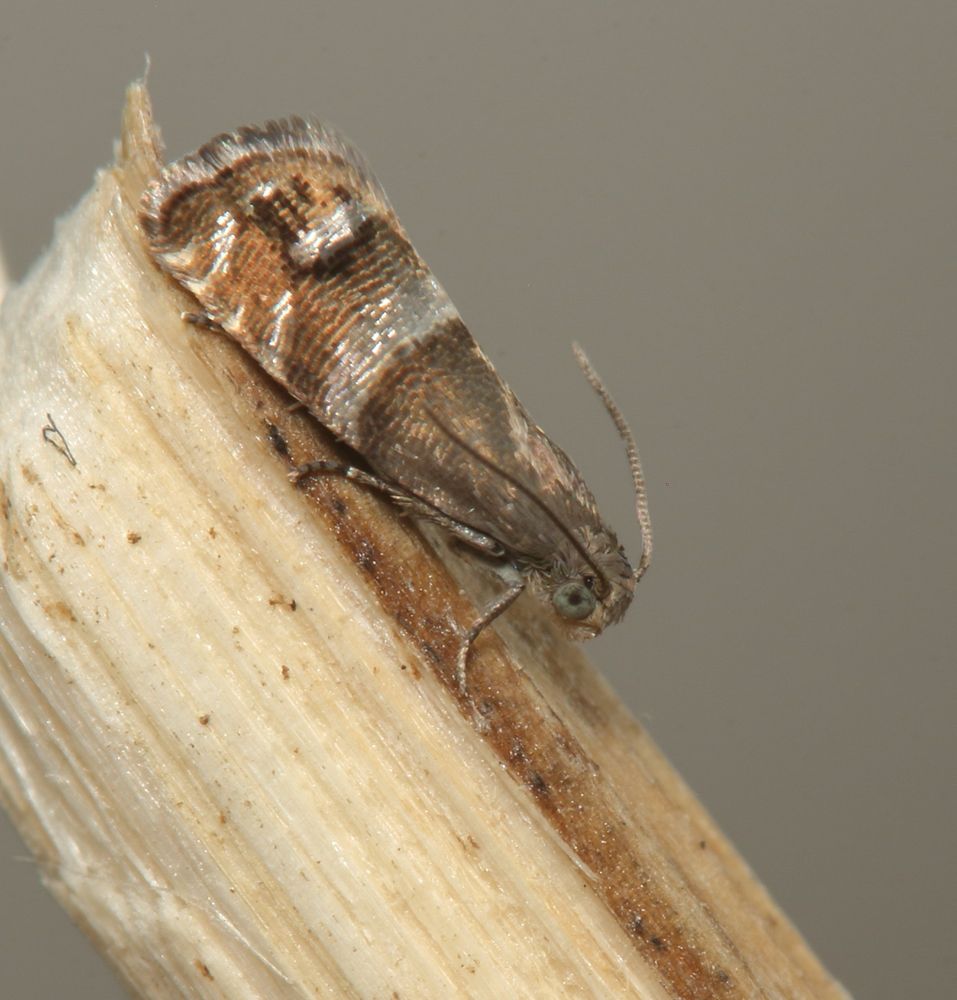
An adult of the micro moth Pammene juniperana.
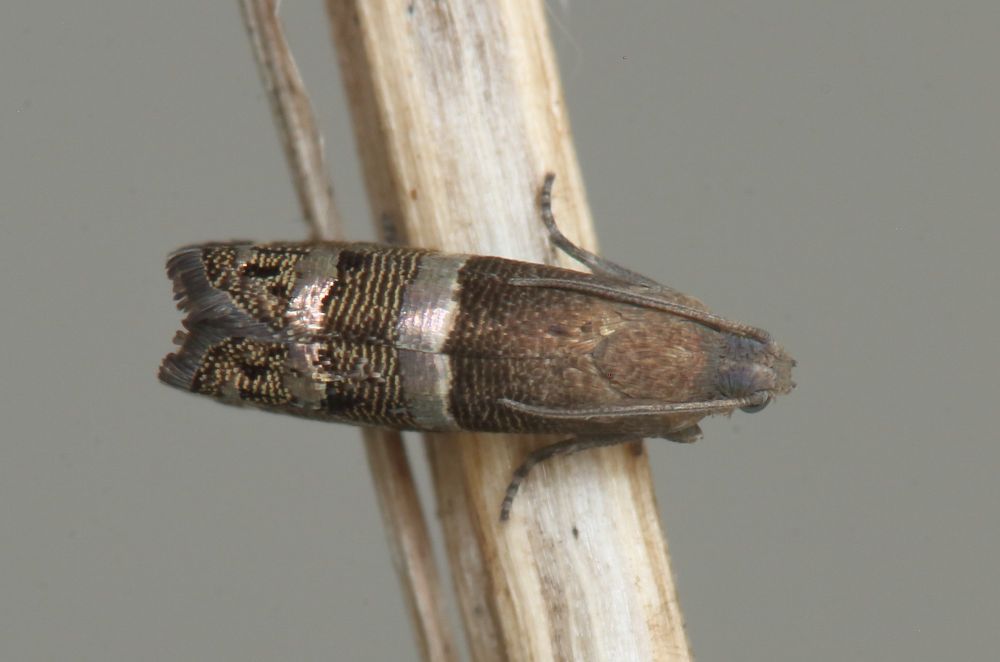
An adult of the micro moth Pammene juniperana.
Look out for the (tiny!) adults which can be found flying low over the foodplant on warm afternoons from the end of May.
18.04.2025 09:00 — 👍 6 🔁 0 💬 1 📌 0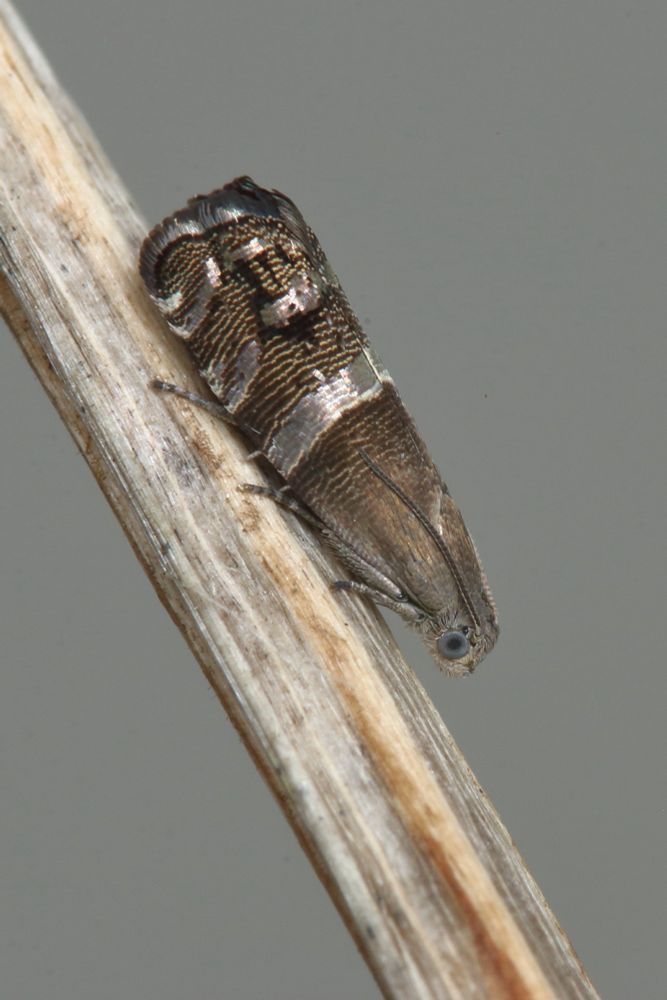
A male of the micro moth Pammene juniperana.
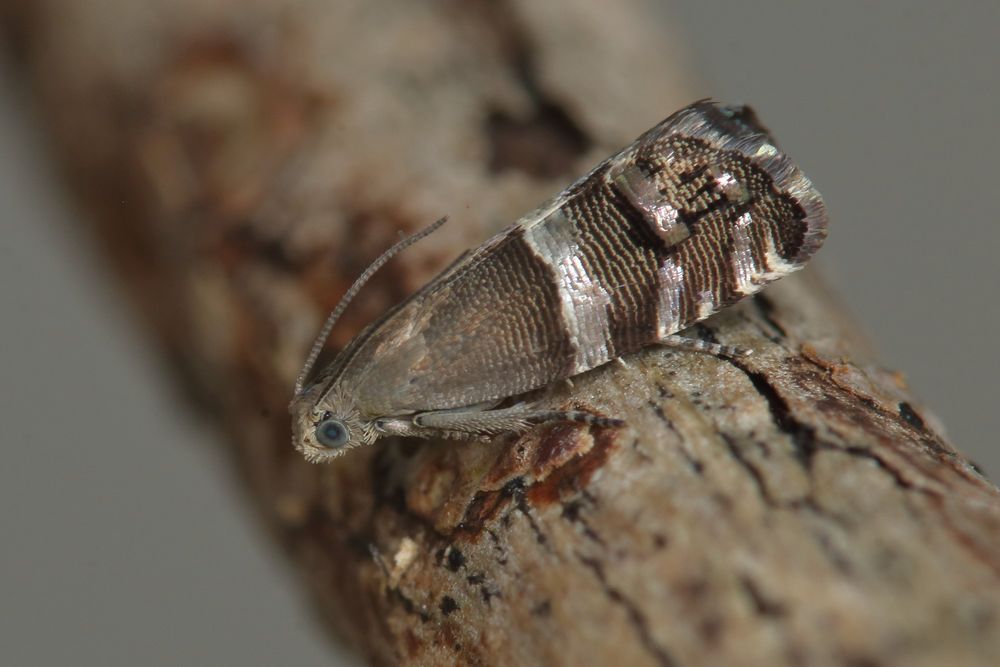
A female of the micro moth Pammene juniperana.
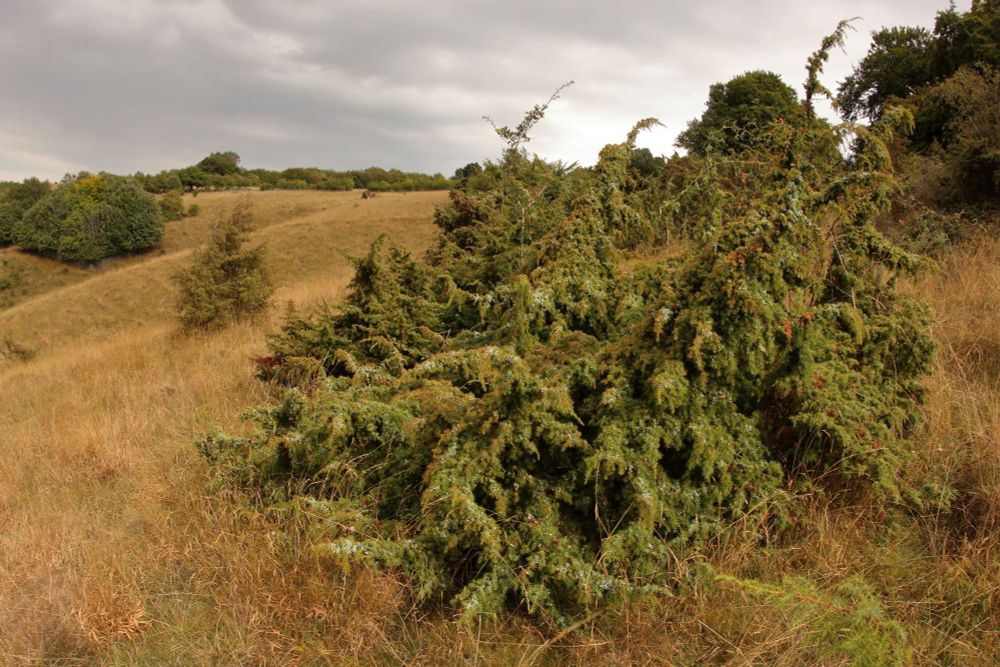
Habitat of the micro moth Pammene juniperana with wild Juniper growing on chalk downland.
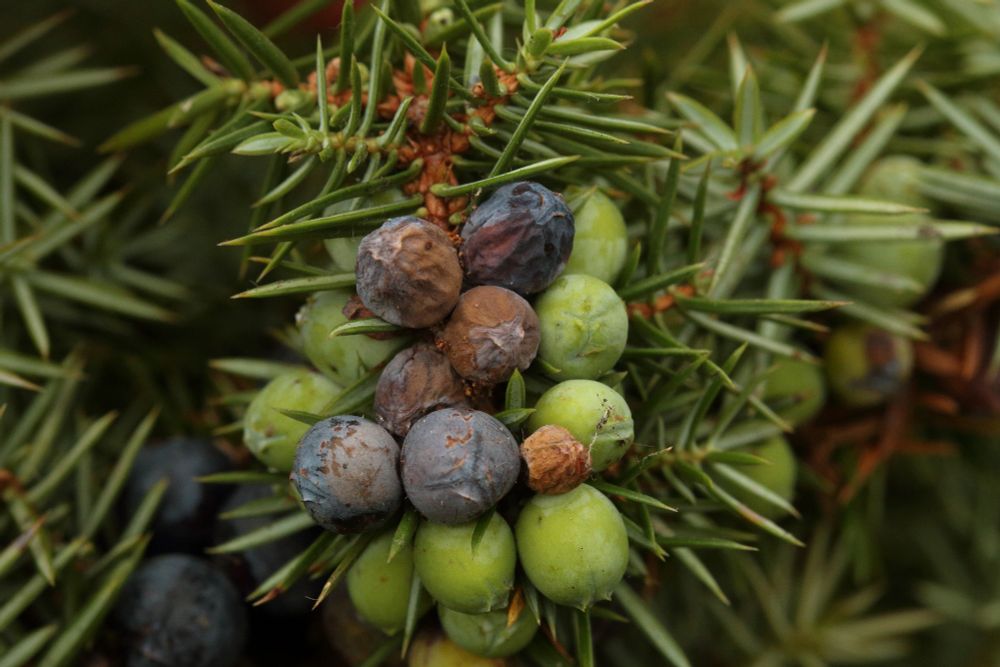
Larval feeding signs of the micro moth Pammene juniperana, with green Juniper berries discoloured pale blue.
Previously only recorded once in the UK in 2018, records of Pammene juniperana have been increasing since 2022. Pleased to finally share this paper with @jamesehammond.bsky.social confirming that this lovely moth is breeding here, probably both on both wild and garden Junipers: shorturl.at/E2LrU
18.04.2025 09:00 — 👍 61 🔁 4 💬 5 📌 2I'm always quite cautious with adult Elachistids but would have been happy to ID this on external features (I think you could even say it's probably a male given how dark it is)? They do wear and get tricky quickly though don't they :)
15.04.2025 16:57 — 👍 3 🔁 0 💬 1 📌 0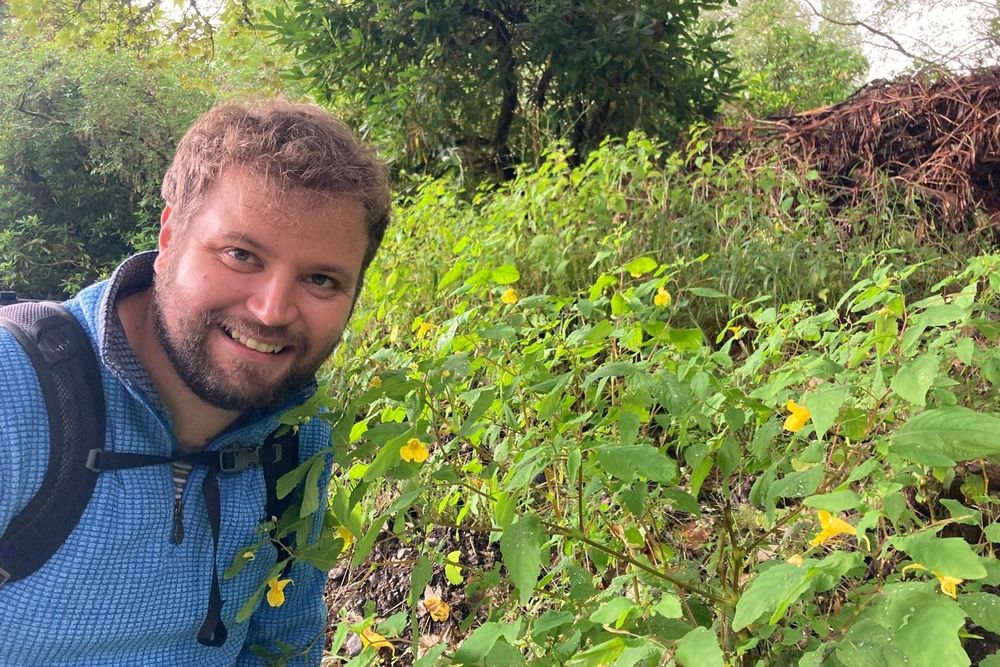
10 years ago, I started my first paid job in Ecology and have very much enjoyed my time working for various charities to understand and conserve our often overlooked invertebrates and plants. (1/3)
14.04.2025 15:28 — 👍 19 🔁 2 💬 1 📌 1